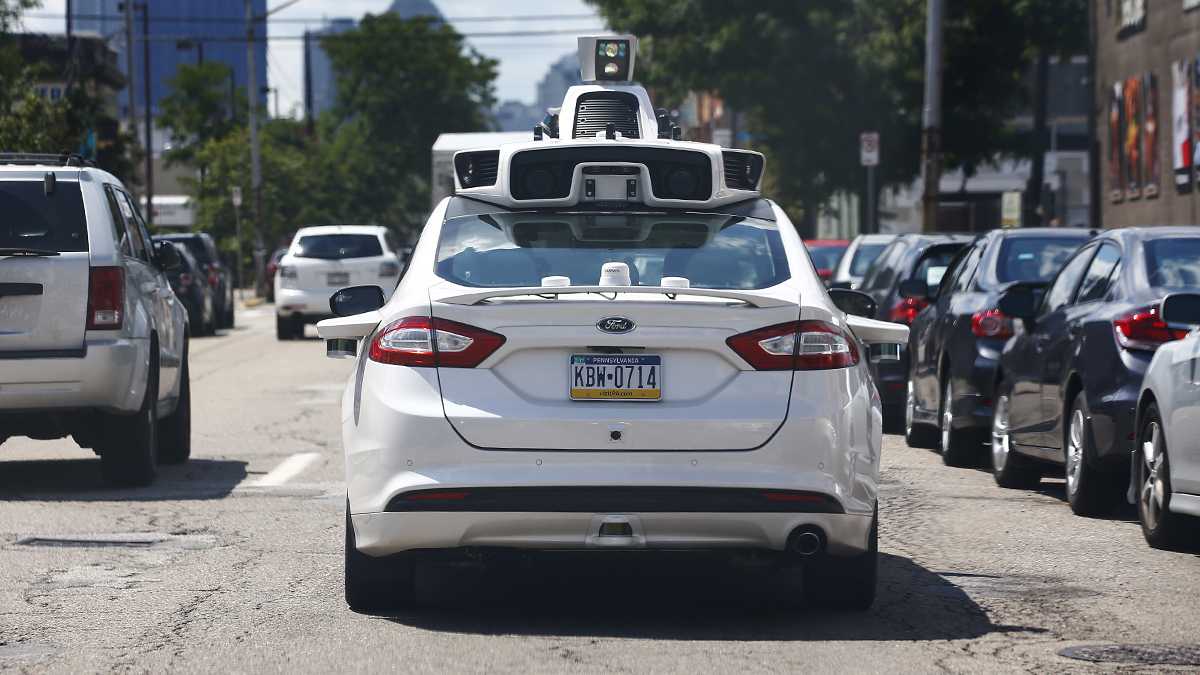New Jersey considers regulating tests of self-driving cars

A self-driving Ford Fusion hybrid is test driven. (AP Photo/Jared Wickerham)
A measure under consideration by New Jersey lawmakers would regulate testing self-driving vehicles on state roadways.
The proposal would ensure there are some requirements for self-driving cars that would be on the roads with insured drivers, said Assemblywoman Pam Lampitt, the bill sponsor
“You’ve seen the pictures where there’s an autonomous car where you … have a table in the middle and have coffee with four people, and the person who should be in the driver’s seat has their back turned to the road,” said Lampitt, D-Camden. “Those are the cars that we need to be more diligent about to make sure the testing is being done safely.”
The legislation calls for manufacturers to secure state Motor Vehicle Commission approval that an autonomous vehicle is safe to operate. And a driver must be behind the wheel to take control if necessary.
Assemblywoman Valerie Huttle said that’s important in a state with some of the worst traffic congestion in the nation.
“Changing lanes and keeping the speed limit, I feel there are some many challenges to this. An autonomous car would obey the speed limits,” said Huttle, D-Bergen. “Think about how slow these cars would be going on the New Jersey Turnpike because most of us have that flexibility.”
Damon Porter with the Association of Global Automakers said National Transportation Safety Board guidelines already in place make the measure unnecessary.
“What you’re actually doing is creating a patchwork of laws that’s going to make It very difficult for an automobile manufacture to design and perform a car that can be sold in all 50 states,” he said.
Princeton University professor Alain Kornhauser, who has been testing autonomous vehicles on New Jersey roads, said the legislation is not the direction the state should take.
“What the regulation seems to be is more focused on trying to constrain research and development in this particular area which is totally focused on safety,” he said.
WHYY is your source for fact-based, in-depth journalism and information. As a nonprofit organization, we rely on financial support from readers like you. Please give today.




